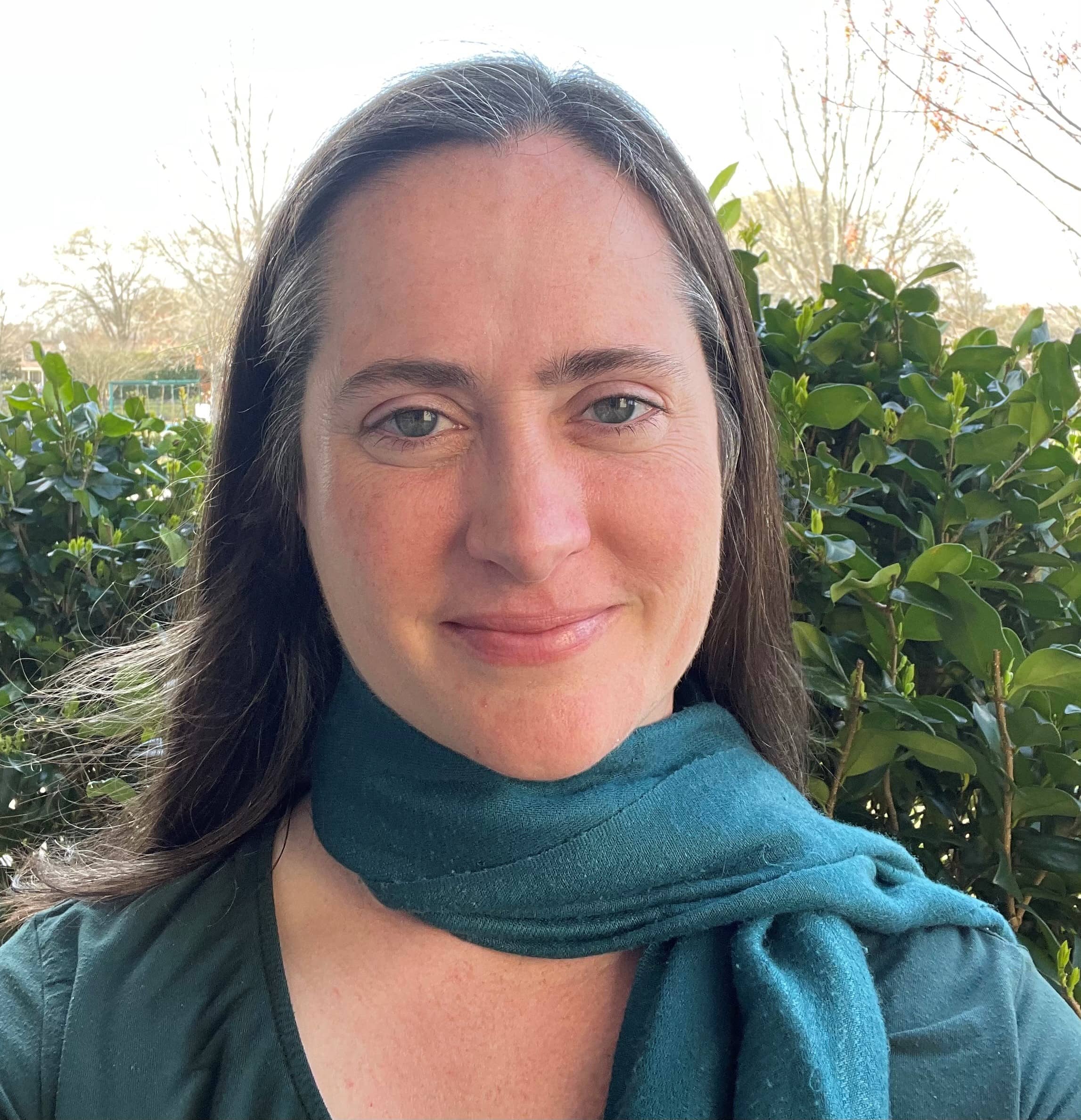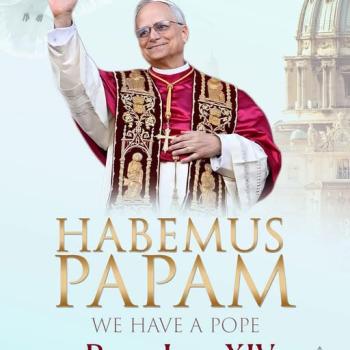
An irony: By officially designating some saints as doctors, the Church means to bring outstanding teachers from the past into closer contact with the faithful of the present.
Instead, the title often brings about even more distance. Surely, thinks the average believer, these ‘doctors’ of the Church are too lofty for me.
Could this be a case of Too Much Latin?
To American ears, Latin makes things sound more sophisticated than they are. Even universities with no Latin courses on offer use Latin mottos to sound more prestigious. It turns out that doctor is simply the word for teacher. Athanasius, Aquinas, Hildegard, and company are simply the great teachers of the Church.
Great teachers are guides and navigators. They point out rocks hidden beneath the surface so their fellow pilgrims will not founder. They teach so students will find the way, not so students will be impressed. Ever pointing beyond themselves to the Truth, they maintain the posture of student (Latin: discipulus) even as they give instruction.
The master teachers of the Christian heritage should not be banished to university library stacks. The whole point of making a list (Latin: canon) is to bring them into our modern homes, classrooms, and churches.
Second Opinions
Fortunately untouched by the publish-or-die culture of today’s top universities, the faculty of doctors prizes neither innovation nor originality, but Revelation and salvation. Because the doctors set out to hand on the faith and not invent it, they echo one another. Indeed, the more you read the doctors, the more concurring opinions you encounter.
It also becomes clear that they all desire more than mere understanding from their students. They seek our transformation in Christ; they teach that we might be healed. In this sense, that medical association we can’t help but bring to the word doctor is apropos.
So what do the doctors recommend?
Let them speak to us of our infirmities and prescribe to us their strong medicine.
Infirmity 1: Material Comfort
Among some of us, the doctors detect the paradoxical malady of having too much.
We patients have trouble diagnosing this problem, for such things as air conditioning, antibiotics, automobiles, refrigerators, and non-hay mattresses all seem like basics to us. The lines between health and indulgence, between simplicity and luxury, and between normalcy and privilege are increasingly difficult for the first world to limn, and most people do not think to try. Poverty brings its own illnesses, and should not be glamorized, but its fix is not wealth; wealth is a wolf in sheep’s clothing.
As “diseases of comfort” start to confound global health systems, perhaps we will be prompted to look more closely at God’s plan for human flourishing, and this wolf of luxury will be unmasked.
Jesus said, “How hard it is for those who have wealth to enter the kingdom of God! For it is easier for a camel to pass through the eye of a needle than for a rich person to enter the kingdom of God.” Instead, he says: “Blessed are you who are poor, for the kingdom of God is yours.”
The doctors of the Church echo this idea down through the ages:
“Although what you ask is about eternal life, you give proof of being utterly addicted to the enjoyment of this present life.” -Basil the Great (4th century)
“If you would rise, shun luxury, for luxury degrades…. Nothing is worse than luxury.” -John Chrysostom (4th century)
“Nobody can fight properly and boldly for the faith if he clings to a fear of being stripped of earthly possessions.” -Peter Damian (11th century)
“Our possessions are not ours – God has given them to us to cultivate, that we may make them fruitful and profitable in His Service, and so doing we shall please Him.” -Francis de Sales (17th century)
“A very uneasy and unhappy death will be the lot of those who have labored only to increase their possessions, or to multiply the honors of their family, or who have sought only to lead a life of ease and pleasure, but have not watched over the morals of their children.” -Alphonsus Liguori (18th century)
All the doctors quoted here witnessed to us by taking their own advice. As archbishop of Constantinople, he was always invited, but John Chrysostom attended no sumptuous parties at the imperial court. Francis de Sales deprived himself not only of material possessions, but also of personal safety, by taking up a Catholic mission in newly Protestant Geneva. Basil the Great established a hospital complex for the indigent sick, and it was so big that some described it as a city unto itself.
Remedies For Comfort
Applying the advice of the doctors is the work of a lifetime. Some small steps to consider:
~ Choose a quote from the above. Emblazon it on your wallet or make part of it the password to your financial accounts.
~ As an exercise in gratitude and in self-awareness, inventory the luxury goods you own. Next to each item, list a way to use it for the benefit of others.
~ Sell something precious to you. Give the money directly to the poor. This is not really a practical thing to do, and it might seem unseemly; but then again, it might help save your soul.
~ If you are a confessor, explore how you might assign acts of almsgiving as penances.
Infirmity 2: Self-Reliance
Some rely on material comfort for their happiness, but others want to rely on nothing and on no one but themselves. The doctors diagnose as another weakness something many today hold to be a strength: self-reliance.
Addressing this malady requires prudence. Prudence is the virtue of living in reality, and in reality, our very existence depends on God. A phone that never recharges becomes useless, or as we tend to say, dead. A person who does not turn to the source of all life for her sustenance turns out the same.
Prayer is our way of staying connected to our source. In its essence, prayer is an acknowledgment of the inadequacy of the self and the need for God. Thus prayer and self-reliance have an inverse relationship.
Note: Simply sitting down to think is not prayer. Many a soul who believes she hears the Spirit prompting her toward a particular course of action is really just hearing from herself. Such musings are not prayer, of course, but self-reliance in masquerade.
The doctors have given us pages worth of quotable insights on the subject. A selection:
Happy the man whose words issue from the Holy Spirit and not from himself. -Anthony of Padua (13th century)
Read unwearyingly the precepts of the Lord and you will know what to avoid and what to pursue. -Bernard of Clairvaux (12th century)
It is ours to offer what we can, His to supply what we cannot. -Jerome (4th century)
When you begin to read or listen to the Holy Scriptures, pray to God thus: ‘Lord Jesus Christ, open the ears and eyes of my heart so that I may hear Your words and understand them, and may fulfill Your will.’ Always pray to God like this, that He might illumine your mind and open to you the power of His words. Many, having trusted in their own reason, have turned away into deception. –Ephrem the Syrian (4th century)
When people choose to withdraw from a fire, the fire continues to give warmth, but they grow cold. When people choose to withdraw from light, the light continues to be bright in itself, but they are in darkness. This is also the case when people withdraw from God. - Augustine (4th century)
Help me respond to the slightest prompting of Your Grace, so that I may be Your trustworthy instrument for Your honor. -Teresa of Avila (16th century)
For me, prayer means launching out of the heart toward God; a cry of grateful love from the crest of joy or the trough of despair; it is a vast, supernatural force that opens out my heart, and binds me close to Jesus. -Therese of Lisieux (19th century)
Remedies For Self-Reliance
~ Acknowledge that true prayer comes from God of Whom we must ever ask, Teach us to pray.
~ In humility, commit to traditional practices that you did not concoct, as it is prayer that sustains you and not the other way around. Invest your time in the Liturgy of the Hours and the Sacraments. Consider an app like Hallow or a subscription to a podcast like Bible in a Year. Today, there is too much emphasis on individual, independent, silent, original prayer, but in the beginning it was not so.
~ Seek help from Teresa of Avila’s Interior Castle and from the books of doctor-in-the-making Leonard J. DeLorenzo.
Strong Medicine
At the end of our days, we will be measured by love. The eloquent saints we honor as doctors show us love’s stratagems, hindrances, and stakes. Many other messengers exhort us with the same messages, but none with so much credibility. This Easter and in every season of God’s love, let us heed the doctors’ advice and take their strong medicine.
4/15/2022 6:14:07 PM





